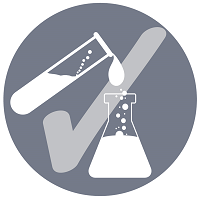Back
Formulation and Delivery – Biomolecular
Session: Rapid Fire: Evolution in Patient-Centric Drug Formulation and Delivery (BM)
Reinventing Cyclodextrins as Novel Excipients for Inhaled Formulations
Wednesday, October 19, 2022
3:45 PM – 4:00 PM ET
Location: 204 AB

Vivek Gupta, PhD
Associate Professor, Pharmaceutical Sciences
St. John's University
Queens, New York
Rapid Fire Speaker(s)
The pulmonary delivery of therapeutics offers the advantages of a relatively low dose, low incidence of systemic side effects, and rapid onset of action for some drugs. It may avoid administering poorly absorbed drugs via the GI tract, and improve their pharmacokinetic profiles. Cyclodextrins have been used for many years as a pharmaceutical solubilizer to enhance aqueous solubility and thereby bioavailability, improving the ease of administration. In this presentation, we will review various cyclodextrin-based drug delivery systems which can be administered in the lungs via various delivery mechanisms. While holding immense potential, advances in pulmonary delivery is hindered by lack of clinically relevant excipients to enhance and sustain the delivery of therapies. We will review the therapeutic outcomes of cyclodextrin-based formulations delivered to the lungs to treat various pulmonary diseases. We will also provide the preclinical and clinical evidence of cyclodextrin-based formulations administered by the inhaled route.
Learning Objectives:
- Understand issues with current drugs, and role of cyclodextrins in improving drug solubility
- Demonstrate the feasibility and relevance of cyclodextrins as effective carriers for pulmonary delivery
- Understand impact of novel devices and delivery platforms for cyclodextrin-based therapeutics in deep lung regions.


